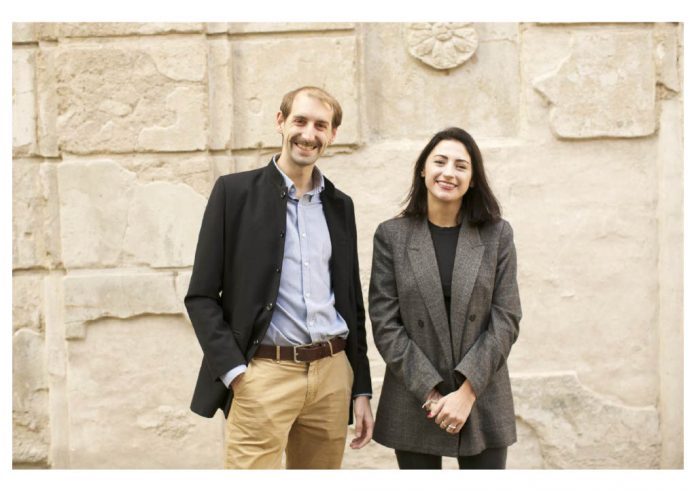Established in 2017, Plan A was co-founded by Lubomila Jordanova and Nathan Bonnisseau on the belief that every company – however big or small – has the power to pave the way to a more sustainable future.
According to Jordanova, the private sector is imperative in this process, “We see private companies as the most important vehicle when it comes to driving the transformation process decisively and sustainably. We want to support them on their journey and provide them with a data-driven, science-based SaaS platform to achieve their CO2 reduction targets and improve their ESG performance.”
Plan A claims its mission is to decarbonise companies of all sizes, globally. The company is leveraging science and technology and has built a SaaS platform that allows firms to balance their carbon footprint, decarbonise and improve their ESG performance.
The company has developed a SaaS platform that serves as a data hub that sources, processes and analyses corporate emissions and ESG data. In order to calculate the carbon footprint of businesses, its platform – which follows the methodology of the Greenhouse Gas Protocol Corporate Standard – collects the necessary company data across all relevant emissions scopes 1,2 and 3 and merges them with appropriate national emission factors and datasets. This software then calculates the emissions and monitors them over time to visualise progress and compare them to industry benchmarks or targets enshrined in the Paris Agreement.
Jordanova said, “We firmly believe that it is not enough to create visibility for a company’s current carbon footprint. Instead, our software AI actively helps companies set Paris Agreement-compliant net-zero targets and achieve them through more than 1,000 decarbonisation solutions, activities, and best practices, as well as a network of service providers and sustainability professionals. These are based on the company’s emissions profile and directly address the indicators with the most significant reduction potential.”
To meet the highest standards, all emissions calculations and proposed decarbonisation measures are developed by Plan A’s scientific team. The team consists of international scientists, researchers, and experts in emissions accounting, carbon reduction, sustainability and life cycle analysis.
Company USP
What sets Plan A apart from its competitors? Jordanova suggests that the company’s USP relies on three pillars. The first is that its data and recommendation engine is able to process any data centrally – regardless of format and volume and sustainability and ESG performance data. This, the Plan A co-founder claims, enables clients from a wide range of industries to understand their emissions and ESG performance. Companies can also integrate their own systems on the platform easily.
The company also claims it has kept with its ‘strictly’ scientific approach, which it states set them apart from many competitors. “All services on our SaaS platform are co-developed by scientists and follow the internationally recognised Greenhouse Gas Protocol. This means that they are based on the latest scientific standards and methodologies, which was certified by TÜV Rheinland, one of the leading verification service providers in the German-speaking countries,” underlines Jordanova.
The third key pillar that sets Plan A apart is its strong decarbonisation-first approach. For the company, becoming ‘climate neutral’ is not a desirable goal as many businesses are able to simply offset their emissions to claim carbon neutrality.
Jordanova remarked, “However, to really move the needle and counteract climate change, businesses first and foremost need to reduce their emissions first. This is what our software focuses on. Only for unavoidable emissions do we offer compensation in the form of carbon offsets and carbon removal certificates. For the compensation that we offer to our clients, we only work with certified project developers, which means that 100 percent of the money that our clients give to these projects go to the projects. We don’t charge for that.”
Pain points
What pain points is Plan A looking to solve? Jordanova believes one of the biggest hindrances of the sustainability journey currently is that it can be a very manual and burdensome process for many corporates.
She detailed, “Leveraging science and machine learning, our software solutions automate this holistic process from carbon accounting over decarbonisation planning and ESG optimisation to reporting in one platform. Also, companies quite often consider the sustainability and ESG journey to be an utterly complex one, with 300,000 steps, projects, and people. It can be, however, a lot simpler.
To date, we have embedded 1,000+ science-based decarbonisation and ESG improvement solutions and activities in our platform to enable sustainability managers to break down this long-term journey into small steps and go slowly, but surely. With this, we enable our clients to start implementing small improvements, which of course will inevitably lead to the significant shift in positioning as a market leader.”
Sustainability Initiative
While the company is trying to help the private sector decarbonise, the company itself is aiming to lead by example through its Sustainability Initiative. This plan, Jordanova explains, has seen the company disclose its total carbon footprint of 85.74 tonnes of CO2 for the base year of 2020 and is aiming to decarbonise at least 80% of its avoidable emissions by 2025.
Additionally, as part of the plan, Plan A claims it is about to appoint a Scientific Advisory Board, that it joined the UN’s SME Climate Hub and signed the Climate Pledge. The firm also obtained its B Corp certification earlier this year which acknowledged that it adheres to strict social and environmental standards.
Later this year, the company is also planning to publish a full-scope report for 2021, which will include a publicly available decarbonisation strategy. “We want this to serve as a blueprint and resource of inspiration for other fast-growing companies to take scientifically sound action on their sustainability journey,” said Jordanova.
ESG challenges and apprehension
With ESG growing in popularity and stature, the reporting method is becoming more ingrained in the financial system. However, Jordanova believes that one of the most pressing challenges in the years to come for ESG is that companies will need a clear framework and standards for non-financial reporting.
She said, “This is to enable them to report on their environmental, social, and governance performance in a standardised, reliable, and consistent manner, including clear deadlines. This would also be a decisive means to put an end to greenwashing. This is already in motion with the advent of the EU Taxonomy at the EU level and the development of new regulations like CSRD as an update of SFDR.”
Despite its growing popularity, there is still some apprehension around the topic of ESG – this can be linked to some companies believing the reporting method requires them to make far-reaching, drastic changes quickly and without preparation. In the opinion of Jordanova, this doesn’t have to be the case, and apprehension isn’t necessary.
She remarked, “There is no need to be apprehensive at all. The sustainability journey is all about making small steps. No one expects you to climb up Everest. Rather pick a hill and go step by step. Allocate sufficient resources to start improving your ESG, which of course will lead to a sustainable transformation of your business in the long run.”
The Plan A co-founder also noted that due to the latest and upcoming regulation, the topic of ESG is inevitably going to become part of all businesses’ agenda. So, the sooner companies start, the better – Jordanova quipped.
Plans going forward
As the company continues to move forward and strengthen its grip on the industry, the company has a number of plans to build its reputation and business.
Jordanova said, “One of the main focuses will be to further develop our software platform, deepening its capabilities and introducing it to further industries and markets. In order to do so, a vital part will be hiring to grow our teams and expand internationally, with the opening of offices in international hubs.
“With regards to our clients, we have the ambition to decarbonise their businesses within the next few years at an average of 15-30%. With the scale of the companies we work with this is quite a big job. However, we truly believe that with the software we have developed it is possible, because just the recommendations on the platform itself hold the potential for up to 60%.”
Copyright © 2022 FinTech Global











